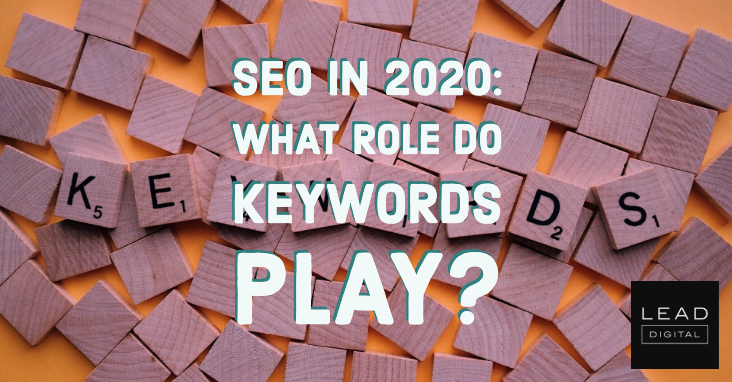 It’s 2020, and SEO professionals who’ve been at it for a while will know just how much has changed in the past decade.
It’s 2020, and SEO professionals who’ve been at it for a while will know just how much has changed in the past decade.
In 2010, we still hadn’t been hit with Panda or Hummingbird or RankBrain or BERT, and many of us still thought “SEO content” was a matter of:
- Adding our target keyword and its close variants in the content X times.
- Making sure to add that keyword to all the magic places like your title tag, meta description, H1, etc.
- Writing at least X words because that’s the magic length for rankings.
But Google’s algorithm has matured.
We know now (or we should) that getting our content ranked isn’t a matter of tricking Google by stuffing keywords in all the right places. It’s about providing an exceptional experience to searchers.
So how exactly should we be using keywords?
To answer that, we’ll need to take a step back and address what it really means to write content for search.
What Is SEO Content?
SEO content is content written for the purpose of ranking in search engines. That term, however, has fallen out of favor with many SEO professionals.
That’s because “SEO content” implies content written for search engines rather than humans, and that’s not good.
Why?
Because Google’s algorithm is a programmatic representation of the searcher.
If the algorithm is trying to model what a human visitor would pick as the best result, the answer to “how to rank” is to do what’s best for searchers.
So if that’s the kind of content Google wants to rank, then the way to write “SEO content” is just to write in a way that people will enjoy – right?
Not quite. There’s a bit more to it than that.
How Do I Make Content SEO Friendly?
SEO-friendly content is content that answers the intent of the searcher’s question clearly and comprehensively, and has a high degree of expertise, authoritativeness, and trustworthiness.
Let’s break that down.
Content That Answers the Intent of the Searcher’s Question
“SEO friendly” content is content that, first and foremost, answers a searcher’s question.
This means that the topic of the page itself will be dictated by the questions your audience is asking.
This also means that not all content is relevant for a search audience. Some content is written for thought leadership or to break news (new ideas = no existing search demand). Other content is written to attract social engagement.
We write content for many different purposes, so we shouldn’t expect every single one of our pages to rank well in search engines.
That means adding search audience-focused topics to your editorial calendar, rather than attempting to sprinkle keywords onto all your pages, many of which weren’t written for a search audience in the first place.
Content That’s Clear & Comprehensive
When you ask a question, do you prefer getting an answer that’s convoluted, vague, and clunky? Or direct, specific, and straightforward?
It’s a no-brainer, right? Google thinks so too.
But it isn’t as shiny and exciting to talk about grammar and diction. I think most SEO professionals would rather talk about topics like natural language processing.
But even the most meticulously researched brief can be ruined by content that doesn’t read well, so this stuff matters.
Don’t underestimate the power of tools like Microsoft Word’s “Grammar & Refinements” settings that can help you:
- Replace complex words with simpler ones.
- Swap wordiness for conciseness.
- Go from passive to active voice.
…and much more.
Google also values content that’s comprehensive. Just take a look at what they say in their quality rater guidelines:
The Highest rating may be justified for pages with a satisfying or comprehensive amount of very high-quality main content.
Or on their Webmasters Blog:
Q: What counts as a high-quality site?
A: You can answer “yes” to “Does this article provide a complete or comprehensive description of the topic?”
Be thorough and be clear when you’re answering your search audience’s questions. – Read more



